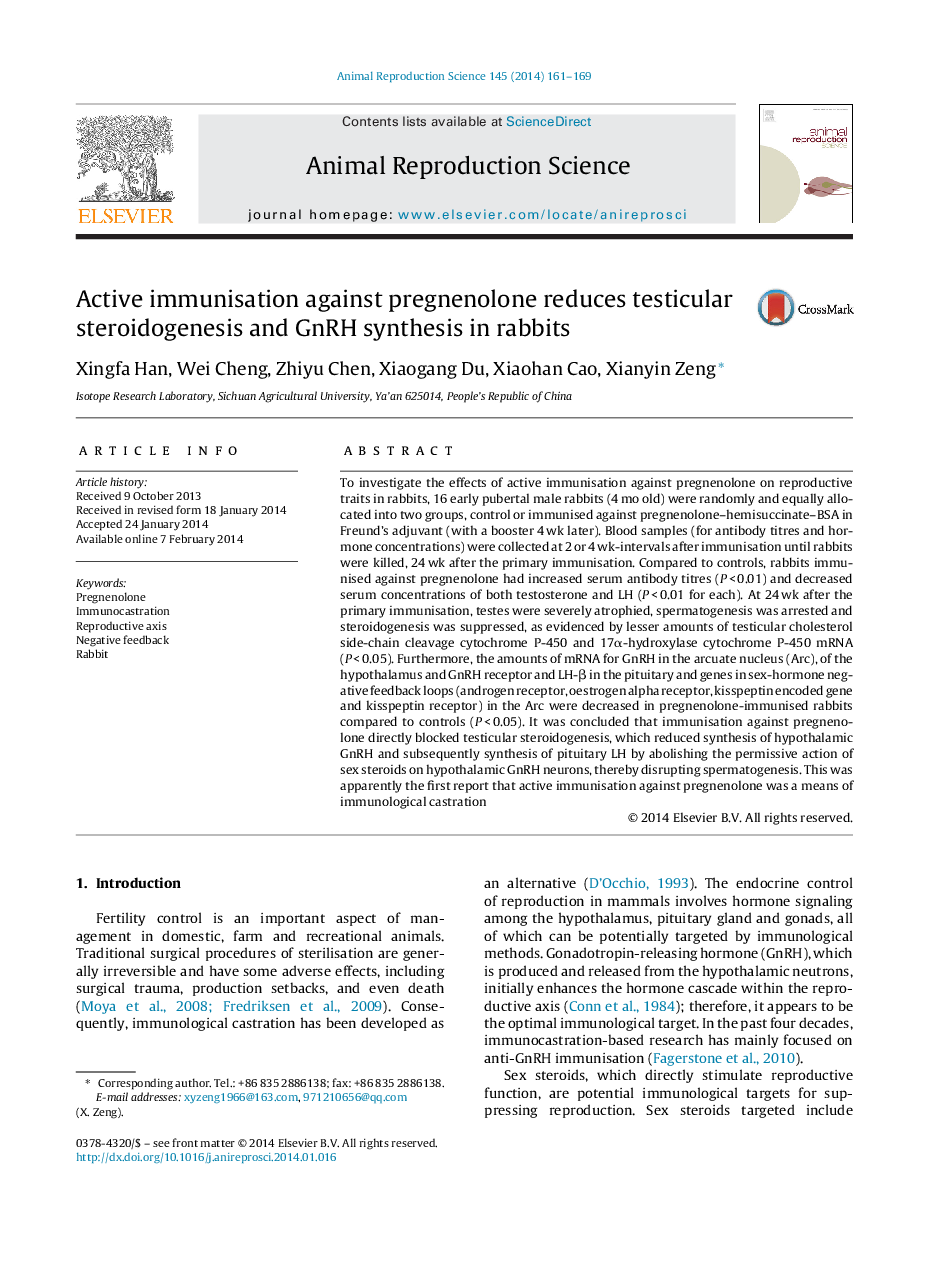| Article ID | Journal | Published Year | Pages | File Type |
|---|---|---|---|---|
| 2072973 | Animal Reproduction Science | 2014 | 9 Pages |
To investigate the effects of active immunisation against pregnenolone on reproductive traits in rabbits, 16 early pubertal male rabbits (4 mo old) were randomly and equally allocated into two groups, control or immunised against pregnenolone–hemisuccinate–BSA in Freund's adjuvant (with a booster 4 wk later). Blood samples (for antibody titres and hormone concentrations) were collected at 2 or 4 wk-intervals after immunisation until rabbits were killed, 24 wk after the primary immunisation. Compared to controls, rabbits immunised against pregnenolone had increased serum antibody titres (P < 0.01) and decreased serum concentrations of both testosterone and LH (P < 0.01 for each). At 24 wk after the primary immunisation, testes were severely atrophied, spermatogenesis was arrested and steroidogenesis was suppressed, as evidenced by lesser amounts of testicular cholesterol side-chain cleavage cytochrome P-450 and 17α-hydroxylase cytochrome P-450 mRNA (P < 0.05). Furthermore, the amounts of mRNA for GnRH in the arcuate nucleus (Arc), of the hypothalamus and GnRH receptor and LH-β in the pituitary and genes in sex-hormone negative feedback loops (androgen receptor, oestrogen alpha receptor, kisspeptin encoded gene and kisspeptin receptor) in the Arc were decreased in pregnenolone-immunised rabbits compared to controls (P < 0.05). It was concluded that immunisation against pregnenolone directly blocked testicular steroidogenesis, which reduced synthesis of hypothalamic GnRH and subsequently synthesis of pituitary LH by abolishing the permissive action of sex steroids on hypothalamic GnRH neurons, thereby disrupting spermatogenesis. This was apparently the first report that active immunisation against pregnenolone was a means of immunological castration
